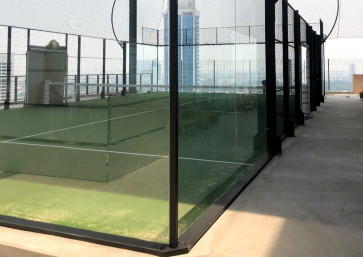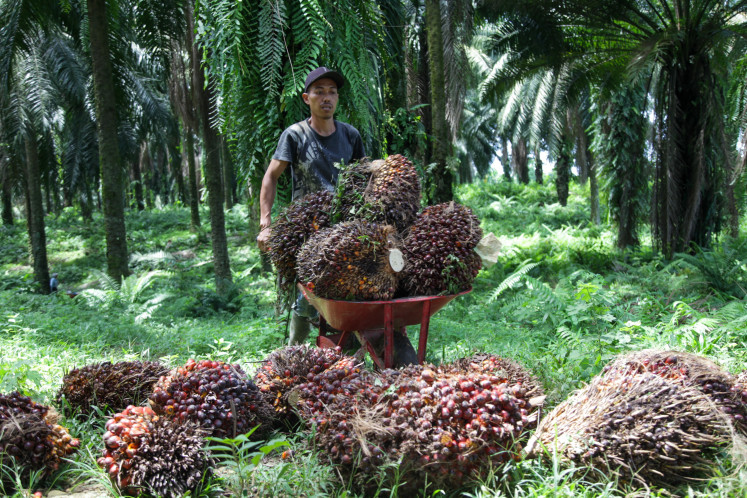Popular Reads
Top Results
Can't find what you're looking for?
View all search resultsPopular Reads
Top Results
Can't find what you're looking for?
View all search resultsNylon yarn producers upbeat over India’s duty revocation
Domestic nylon yarn producers are welcoming India’s decision to revoke an anti-dumping duty that had been imposed for 11 years on nylon yarn, a raw material used for various textile products, including underwear, swimming suits, fishing nets, sewing yarn and tape
Change text size
Gift Premium Articles
to Anyone
D
omestic nylon yarn producers are welcoming India’s decision to revoke an anti-dumping duty that had been imposed for 11 years on nylon yarn, a raw material used for various textile products, including underwear, swimming suits, fishing nets, sewing yarn and tape.
Industry players hope the move increases exports to India, a large market with a population of 1.2 billion people, and jacks up factory utility rates, which are currently low amid competition in the domestic market over imported nylon yarn from China and South Korea.
“India is a big market, so we hope to see exports increase over the years and improve the overall utility rate of the industry,” Supaedi “Didit,” a nylon expert from the Indonesian Association of Synthetic Fiber Producers (APSyFI), told The Jakarta Post on Friday.
India Directorate General of Anti-Dumping and Allied Duties (DGAD) notified the Indonesian Trade Ministry on Jan. 5 of its decision to revoke the duty after having imposed it since 2007.
The major textile-producing country started an investigation into Indonesia’s alleged dumping of the commodity in 2006 before imposing an anti-dumping duty on the import at 46 US cents to $1.11 per kilogram.
India also accused China, Malaysia, South Korea, Taiwan and Thailand of dumping.
The Indonesian export of nylon yarn to India dropped drastically to $573,000 in 2016 from $8.7 million in 2006 after hitting its peak at $22.9 million in 2004 and $22.2 million in 2005, data from the Trade Ministry shows.
Trade Ministry foreign trade director general Oke Nurwan attributed the revocation to a continuous effort by local government and industry players to prove themselves right as well as a recovery of nylon yarn in the Indian industry.
“Indian authorities have found that during the 11 years of the duty on the product, its domestic industry had enough opportunities to fix and successfully recover from [bad] conditions. It also finds facts showing the industry is in a healthy condition,” he said in a recent written statement.
APSyFI executive member Prama Yudha Amdan said there was no way Indonesia was selling the product to India at a lower price than what it sold in the local market due to the high production costs industry players incurred here.
In the domestic market, industry players have in recent years complained of increasing electricity prices and labor wages, saying the higher figures result in reduced competitiveness against Chinese and South Korean nylon yarn.
Didit of APSyFI said foreign products started to flood the domestic market in 2016 due to a separate zero duty policy outlined under the ASEAN free trade agreement (FTA) for China and South Korea.
“The cheap import keeps coming while local production costs get higher, resulting in thinner profit margins. The situation is becoming more difficult. It makes investors think twice about investing more,” he said.
The Indonesian textile industry needs 2,000 tons of nylon yarn every month but half
of it is fulfilled through imports even though the local industry — with only four companies in total — has the capacity to produce 3,000 tons of the product monthly.
“The utility rate has dropped to 60 percent today from almost 100 percent in 2015, when there were fewer imports,” he told the Post.
The change in the utility rate means the four companies only produced 1,800 tons of nylon yarn each month, 1,000 tons of which were sold domestically while the remaining 800 tons were for exports.
To tackle the situation, businesspeople have urged the government to lower energy and labor costs as well as help them in competing against the Chinese product.










